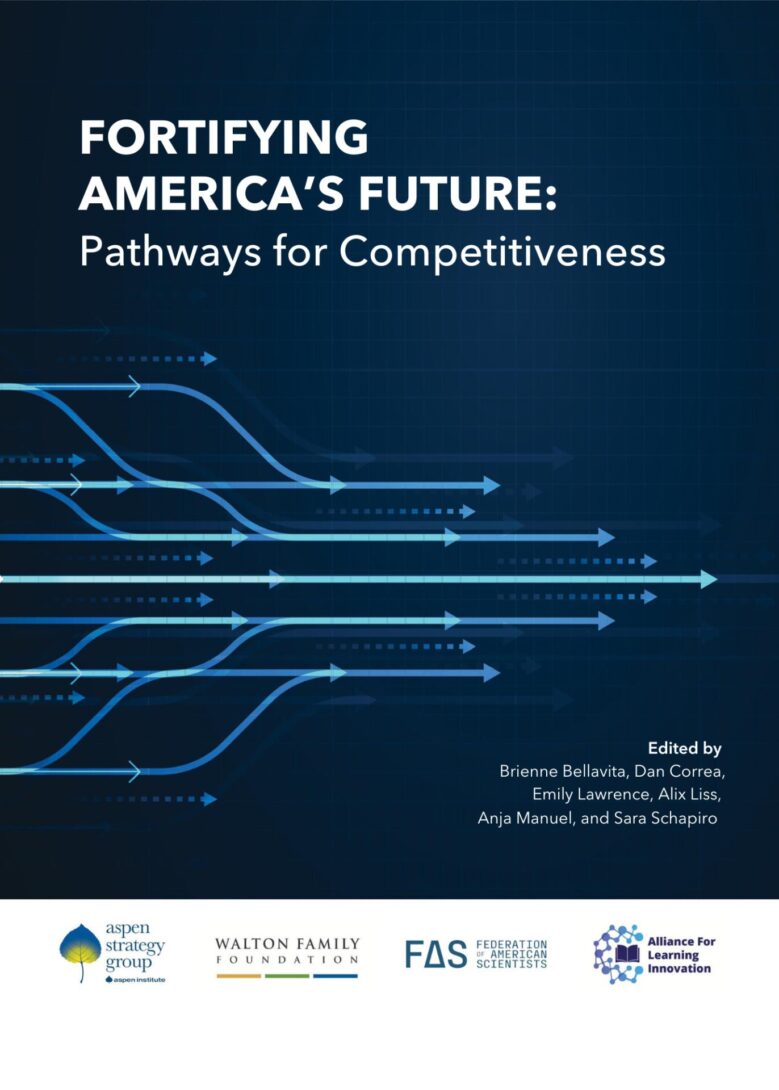The United States faces a looming talent gap in many industries that are critical to our technological competitiveness. Without a stronger education system, capable of preparing our youth for the jobs of the future, our national security is at risk.To address this challenge, the Aspen Strategy Group and the Walton Family Foundation recently convened two roundtable discussions focused on creating pathways, from K-12 into the workforce, for the jobs of the future. This report summarizes the ideas from those meetings and outlines strategies to ensure our technological lead and national security for the future. Those recommendations are:
- Leverage the National Security Community to create a sense of urgency around improving our education ecosystem.
- Provide Federal Incentives and Spotlight State Approaches. Build coalitions around key industries, support states in their efforts to develop K-12 pathways, and highlight impactful place-based approaches that can be scaled.
- Bolster Education R&D to Advance Career-Connected Learning by creating and funding ARPA-ED, improving our data systems, and promoting evidence-based practices in career-connected learning.
- Encourage Students to Pursue Careers in Key Industries by exposing them to more technology-related topics early and communicating the opportunities available to them in key industries.
By creating and promoting career pathways from K-12 into high-demand industries, the U.S. can continue to lead in an increasingly competitive global landscape.

